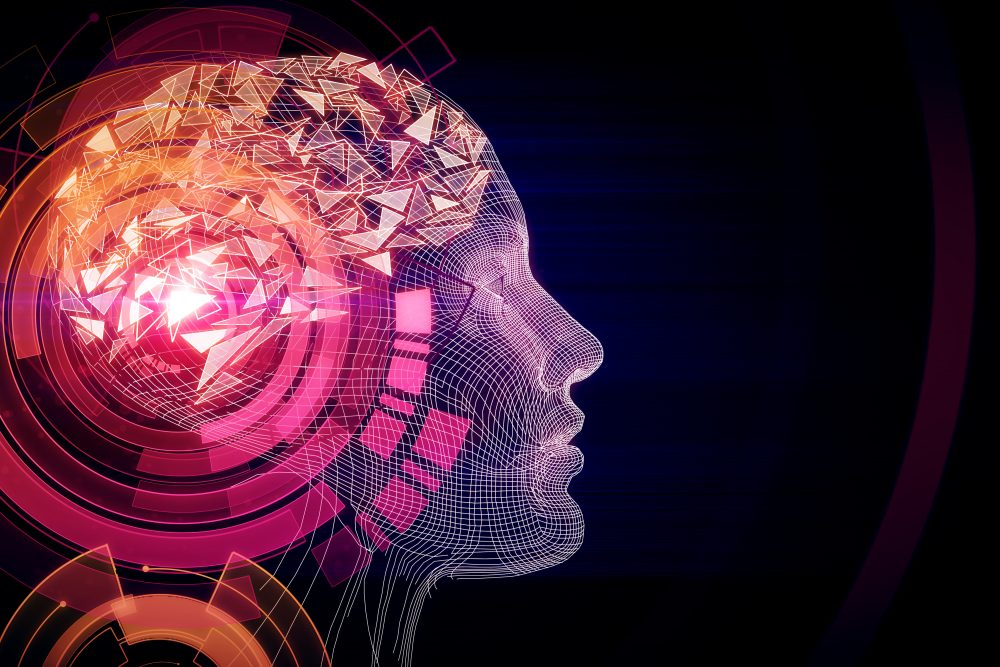


AI Expert: Pilots in TOP GUN–MAVERICK are Obsolete; You are Not
Today’s ID the Future features a recent Michael Medved Show with artificial intelligent expert Robert J. Marks, author of the new book Non-Computable You: What You Do That Artificial Intelligence Never Will. The occasion for the conversation is an article by Marks about the Tom Cruise movie Top Gun: Maverick. In the article, Marks argues that, strictly in terms of optimal military tactics, the job of the human fighter pilots in the movie would have been better filled by drones. But as sanguine as Marks is about the possibilities for AI in military and other applications, he is among the loudest voices insisting that the AI community tends to overhype AI capabilities. In his conversation with Michael Medved, and in Read More ›

Bob Marks on Why AI Won’t Destroy the World, or Save It
Today’s ID the Future dives into the controversial realm of artificial intelligence (AI). Will robots or other computers ever become so fast and powerful that they become conscious, creative, and free? Will they reach a point where they can create faster and better AI, which will create faster and better AI, and quickly leave humanity in the dust? To shed light on these and other questions swirling around the exciting field of AI, host Casey Luskin interviews computer engineering professor Robert J. Marks, head of the Walter Bradley Center for Natural and Artificial Intelligence. In the course of the fast-paced interview, Marks touches on dystopian AI and the limits of computer algorithms (they can never do anything that is inherently Read More ›

No Free Lunches for Darwin–the AI Case Against Blind Evolution
Can artificial intelligence algorithms prove Darwinian evolution? Why won’t some scientists admit the information and intelligent design inherent in evolutionary computing? Do random processes disprove intelligent design? Professor of neurosurgery Michael Egnor hosts Robert J. Marks, Distinguished Professor of Electrical and Computer Engineering at Baylor University, and Director of Discovery Institute’s Walter Bradley Center for Natural & Artificial Intelligence. The two discuss evolutionary computing, the no free lunch theorem, Aristotle, and the contextual role of purpose in recognizing chance events.

Walter Bradley on the Newly Expanded Mystery of Life’s Origin
On this episode of ID the Future, Robert J. Marks interviews Walter Bradley, co-author of the seminal 1984 ID book The Mystery of Life’s Origin, now being released in a revised and expanded edition with updates from multiple contributors discussing the progress (or lack of it) in origins science in the 35 years since the book’s original publication. In this first of two podcasts, Bradley discusses the history of the attempts to explain life’s origin naturalistically, and how the three authors of the 1984 book came together to shake up the world of origin-of-life science.

Computer Engineer Bob Marks Discusses the Perils and Promise of AI
On this episode of ID the Future Dr. Robert J. Marks, Distinguished Professor of Electrical and Computer Engineering at Baylor University and former President of the IEEE Neural Networks Council, argues that computer programs cannot be genuinely creative. Computer programs also won’t be able to experience consciousness, he says, never mind all the media hype on this point. Marks concedes that a computer code can surprise us, as when a program playing the game Go makes a surprising move.
Read More ›
Don’t Raise the White Flag to Our AI Overlords Just Yet
On this episode of ID The Future, computer engineer Robert Marks, co-author of Introduction to Evolutionary Informatics, considers the apocalyptic danger portrayed in The Terminator movies and discussed in all seriousness by some prominent scientists and technologists — the threat of artificial intelligence one day taking over the world. Yes, computing power doubles every couple of years or so, but Dr. Marks insists that a qualitative gulf separates humans from computers, a difference that no amount of computing power can ever overcome. Listen in to learn what it is.
Read More ›
The Dangers, Limits and Promise of Artificial Intelligence
On this episode of ID The Future, Robert Crowther explores the dangers and potential of artificial intelligence with Dr. Robert Marks, Distinguished Professor of Electrical and Computer Engineering at Baylor University and co-author of Introduction to Evolutionary Informatics. Marks uses John Searle’s “Chinese Room” analogy to explain why computers do not have understanding and never will. At the same time, Marks predicts that continuing advances in technology will further augment our abilities.
Read More ›
Math, Computers and Evolution, Pt. 2: Robert Marks on Why Darwinists Can’t Dodge the Modeling Problem
On this episode of ID the Future, CSC Director of Communications Rob Crowther talks with Robert Marks, Distinguished Professor of Electrical and Computer Engineering at Baylor University, about Marks’s new book, Introduction to Evolutionary Informatics. Listen in as Marks discusses the importance of modeling in science, some problems besetting current evolution models, and why a common excuse does not get Neo-Darwinism off the hook.
Read More ›
Math, Computers and Evolution: Robert Marks on Searches and Artificial Intelligence
On this episode of ID the Future, CSC Director of Communications Rob Crowther talks with Robert Marks, Distinguished Professor of Electrical and Computer Engineering at Baylor University, about Marks’s new book, Introduction to Evolutionary Informatics. Listen in as Marks shares about how he and William Dembski originally connected and began researching the subject in 2007, how intelligent design can inform thinking on artificial intelligence, and what a “search for a search” in evolution means!
To purchase Introduction to Evolutionary Informatics by Winston Ewert, William Dembski and Robert Marks, visit Amazon.com.